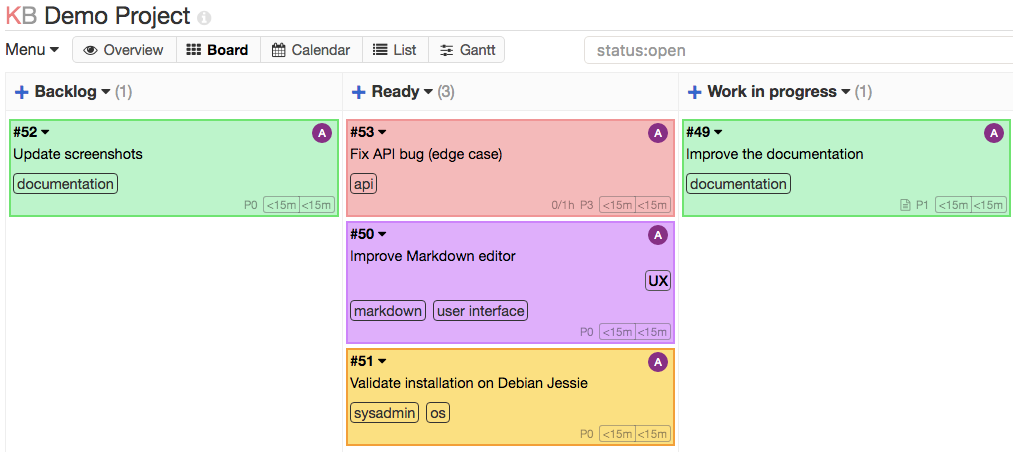Changelog News
Developer news on a Tuesday (because Memorial Day)
Hello friends 👋
Can you believe News only has 1 rating so far in Apple Podcasts?! How will our fellow nerds find their way $HOME if we don’t leave them some breadcrumbs to follow… 🤔
Ok, let’s get into it, shall we? Listen along here 🎧
An API store for LLMs
The team behind Gorilla is building an “open source, one-stop-shop” for all APIs that LLMs can interact with.
Given a natural language query, Gorilla comes up with the semantically- and syntactically- correct API to invoke. With Gorilla, we are the first to demonstrate how to use LLMs to invoke 1,600+ (and growing) API calls accurately while reducing hallucination.
This is a big step in a good direction. Even state of the art LLMs like GPT-4 are prone to calling the wrong API. Gorilla is laser-focused on fixing this and they even developed and released a dataset called APIBench for evaluating the model’s results.
DeviceScript is TypeScript for tiny IoT devices
Available inside VS Code or the command line, DeviceScript is Microsoft’s new TypeScript programming environment for microcontrollers. It’s designed for low power, low flash, low memory embedded projects and has all of the familiar syntax and tooling of TypeScript, including the npm ecosystem for distributing packages.
They’ve provided a list of supported devices and sample code that builds Blinky, a thermostat, and a copy/paste button.
Nyxt: the hacker’s browser
This browser is at version 3.1.0, so it’s been in development for some time, but it’s making the rounds again in our hacker circle because, well, it’s just so freakin’ hacker!
Out of the box Nyxt ships with tens of features that allow you to quickly analyze, navigate, and extract information from the Internet. Plus, Nyxt is fully hackable- all of its source code can be introspected, modified, and tweaked to your exact specification.
Check the project’s homepage for some pretty compelling features. It has a command prompt that provides fuzzy search, link hinting, a REPL, clipboard history, and more.
🚀 Introducing Raycast Pro!
Thanks to Raycast for sponsoring this week’s Changelog News 💰
Stuck while coding? Need some copy? Imagine this: you hit ⌘+space and you’re already asking ChatGPT anything.
Raycast is a blazingly fast, totally extendable launcher for macOS. Think Spotlight, Quicksilver, or Launchbar. Only better.
Today the Raycast team is launching a Pro offering right here on Changelog News. This thing has so many goodies it’s hard to list them all: AI, cloud sync, custom themes, unlimited clipboard history, Pro APIs, and more on the way.
Use Raycast for absolutely FREE and upgrade when you’re ready to Go Pro.
Expectations Debt
Morgan Housel writes about living in Seattle when Amazon was at the top of the world not so long ago:
Expectations were so high in 2021 that investors and employees had to achieve extraordinary things just to break even. When results were merely good, they felt terrible.
Expectations are like a debt that must be repaid before you get any joy out of what you’re doing.
The hard thing is that every company and every employee wants to have what Amazon had in 2021 – winning, wealth, prestige, reputation. But look at what it led to now, after the expectations debt was repaid.
Was it worth it? Hard to say.
We talk often about technical debt, but this is my first introduction to the idea of expectations debt. I like it, and I think it can help explain (and potentially route around) many of life’s disappointments.
There’s still no silver bullet
I’ve found myself referencing Fred Brooks’ No Silver Bullet paper a coupletimes recently. Both of those conversations were in the context of React, but the principle applies to every over-adopted technology. This post is a gentle reminder to my fellow software engineers:
- Does a new tool promise to solve all your problems? It won’t
- Do you think you’ve found the “one true tech”? You haven’t
- Have a shiny hammer that looks great for hitting screws? It isn’t
Hack Club’s new grants help teenagers make PCB boards
OnBoard is a high school program inspiring and supporting 1,000 teenagers to make their first printed circuit board (PCB) within one year. By providing funding, tutorials, and an open-source community, we aim to reignite the passion for electronics in today’s youth.
Every student will receive up to $100 to cover PCB manufacturing costs, and join a community of buzzing, passionate individuals all eager to design circuitry.
A great opportunity, easily forwarded to the teen(s) in your life who could benefit from a nudge in a good direction.
Remembering GitHub’s Office, a Monument to Tech Culture
Nadia Asparouhova, writing for WIRED:
GitHub—which was acquired by Microsoft in 2018—announced this past February that, in addition to laying off 10 percent of its employees, it would permanently shutter all offices once their leases expired, including its beloved San Francisco headquarters. While this announcement may have looked like just another in a string of tech company office shutdowns, GitHub’s headquarters was notable both as a living testament to tech culture and as one of its first disputed territories, whose conflicts presaged the next decade of the tech backlash.
Not only does Nadia paint a vivid picture of what working at GitHub HQ felt like (I visited a couple times for events: vibe confirmed), she tells a tale of a dispute inside its walls. A dispute about a rug (which I’m sure really held the room together) and two visions of meritocracy. A must-read, IMHO.
🌍 World Wide Web dev
- Strawberry: Zero-dependency, build-free framework for the artisanal web
- SmolCSS: Minimal snippets for modern CSS layouts and components
- Rio: Hardware-accelerated GPU terminal emulator powered by WebGPU
- Interfaces: Non-exhaustive list of details that make a good web interface
- Platform: Declarative HTML APIs for building popovers are coming
- Performance: 3 ways to find our worst JavaScript page load offenders
🧰 Tools for your toolbox
Kanboard is a FOSS Kanban project management software
It’s self-hosted with “super simple installation” and focuses on simplicity and minimalism.
JJ – a JSON stream editor (CLI)
A command line utility that provides a fast and simple way to retrieve or update values from JSON documents. It’s powered by Go’s GJSON and SJSON packages under the hood. JJ is fast because it avoids parsing irrelevant sections of JSON, skipping over values that do not apply, and aborts as soon as the target value has been found or updated.
ChatALL chats with a bunch of LLMs concurrently
Large Language Models (LLMs) based AI bots are amazing. However, their behavior can be random and different bots excel at different tasks. If you want the best experience, don’t try them one by one. ChatALL can send prompt to several AI bots concurrently, help you to discover the best results. All you need to do is download, install and ask.
I’ve been doing this manually to compare ChatGPT 4 to Google Bard for awhile now, like a Neanderthal. 🙈
DevPod is like Codespaces but…
Each developer environment runs in a container and is specified through a devcontainer.json. Through DevPod providers these environments can be created on any backend, such as the local computer, a Kubernetes cluster, any reachable remote machine or in a VM in the cloud.
You can think of DevPod as the glue that connects your local IDE to a machine where you want to develop on. So depending on the requirements of your project, you can either create a workspace locally on the computer, on a beefy cloud machine with many GPUs or a spare remote computer. Within DevPod, every workspace is managed the same way, which also makes it easy to switch between workspaces that might be hosted somewhere else.
unit – a next-gen visual programming system
“We dream of a world where everyone is connected through a Powerful, Singular, Infinite, Open, Personal, Distributed and Accessible General Purpose Computer System. Let’s start by rethinking the way we make Software.”
🎧 ICYMI: Recent good pods from us
- The Changelog #540: Sarah Drasner (The 🐐) on her experience leading engineering at Zillow, Microsoft, Netlify, and now Google.
- Changelog & Friends #1: What if your favorite conference’s hallway track continued year round? That’s the vibe we’re trying to capture with this new Friday talk show. Adam and I talk all about it.
- JS Party #277: With a title like “Exciting! Exciting? !Exciting”, it’s hard to know what to expect. Well, if you like your pods “really fun and funny but also wildly all over the place”… this might be the one for you.
- Practical AI #224: Join Daniel & Chris as they have a captivating conversation with Jerry Liu from LlamaIndex. He provides valuable insights into the process of data ingestion, indexing, and querying tailored for LLM apps.
☠️ Sorry I couldn’t NOT include these
- Kenny Log-Ins: Generate secure passwords using the lyrics of America’s greatest singer/songwriter
- yourmom.zip: A URL so juicy I wish we tracked links so I could confirm it as the top-clicked of the week
- The McTetris: Probably the weirdest official Tetris release of all times
- Mata v. Avianca: Reminder: do not to trust anything an LLM tells you
- One-click face swap: One image. No dataset. No training. Scary easy.
That is the news for now!
On Wednesday’s interview show we’re closing out #MaintainerMonth with some more awesome conversations from Open Source Summit. On Friday’s talk show we are Kaizen-ing once again with one of our oldest internet friends: Gerhard Lazu!
Have a great, week, forward this to a friend who might dig it, and I’ll talk to you again real soon.
–Jerod

